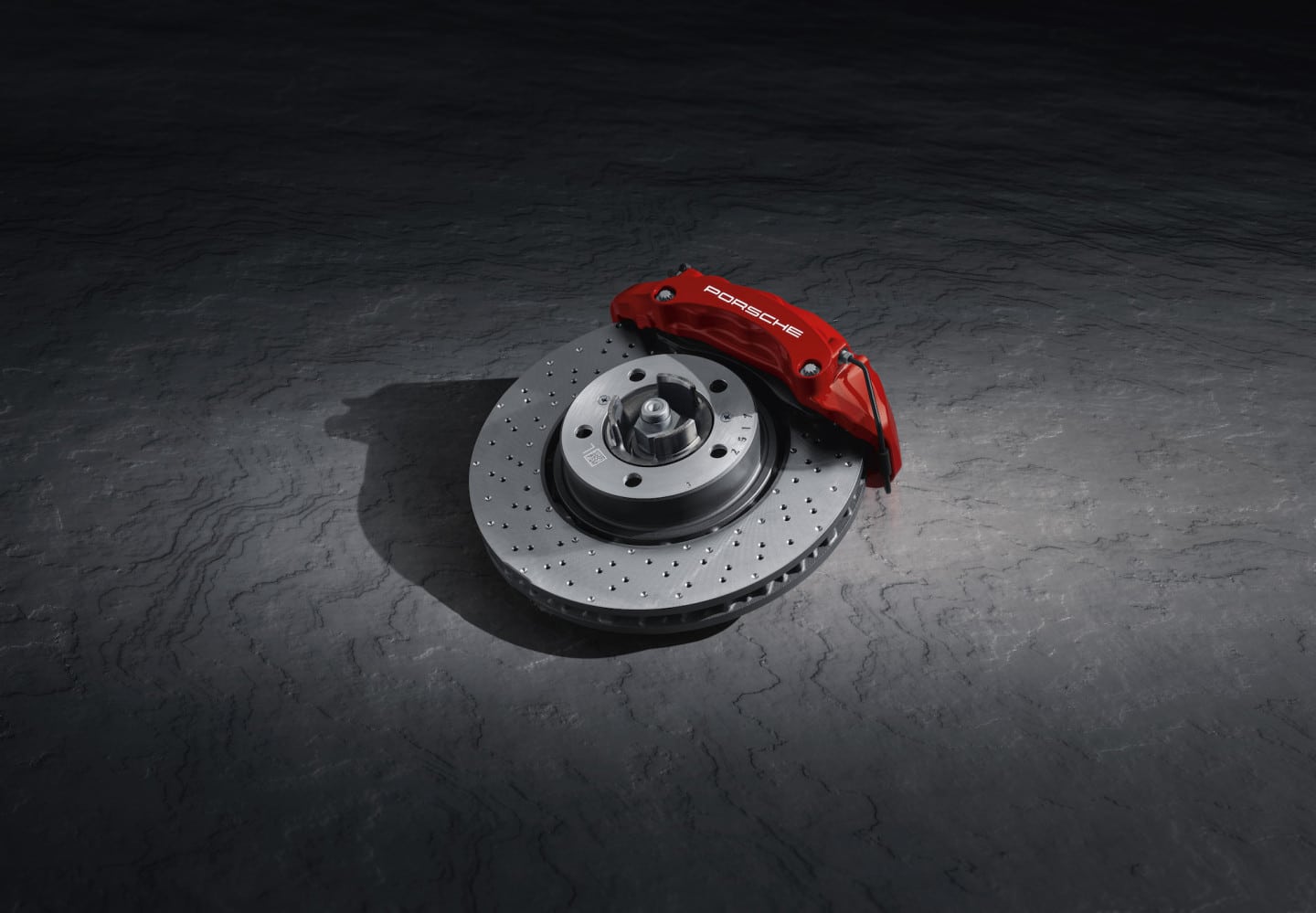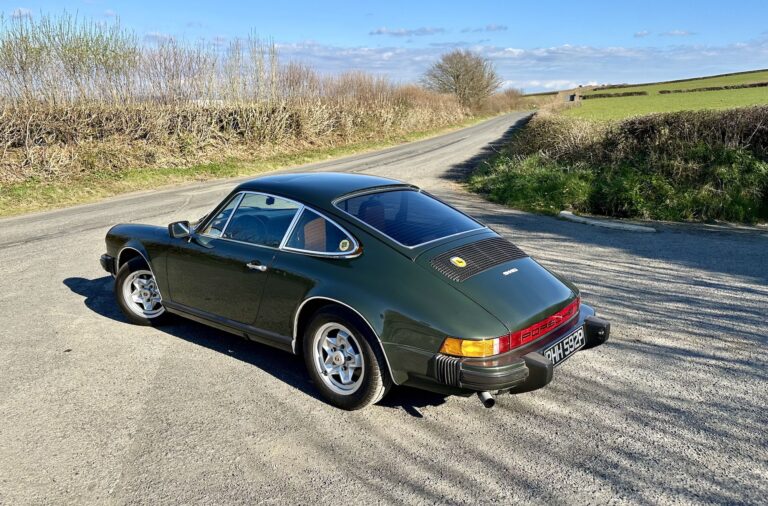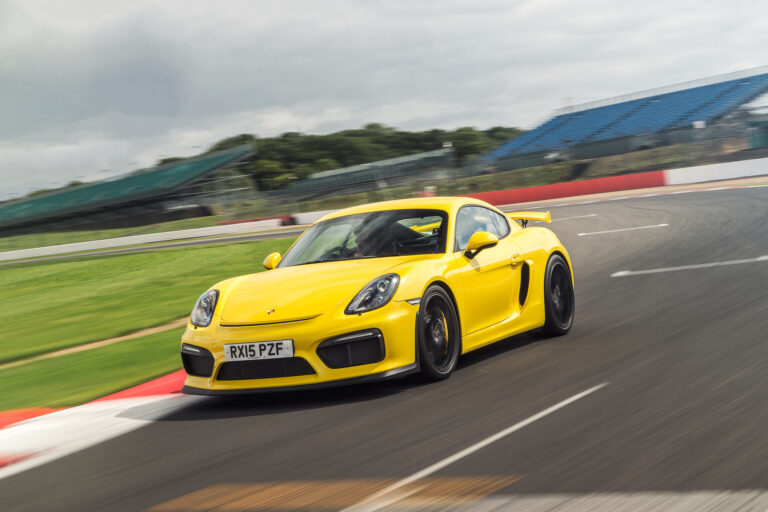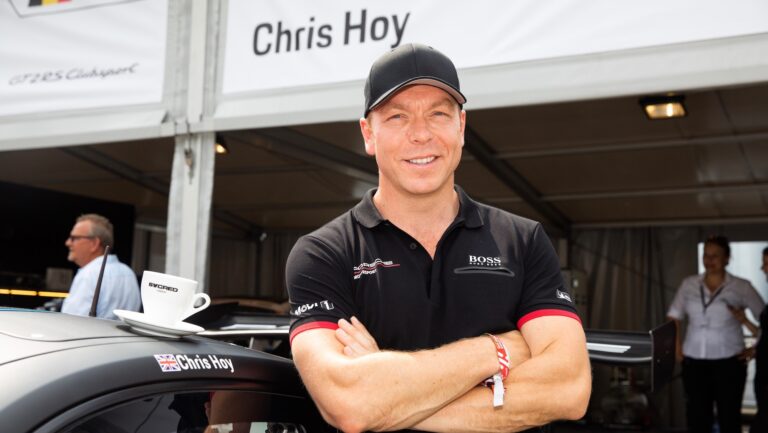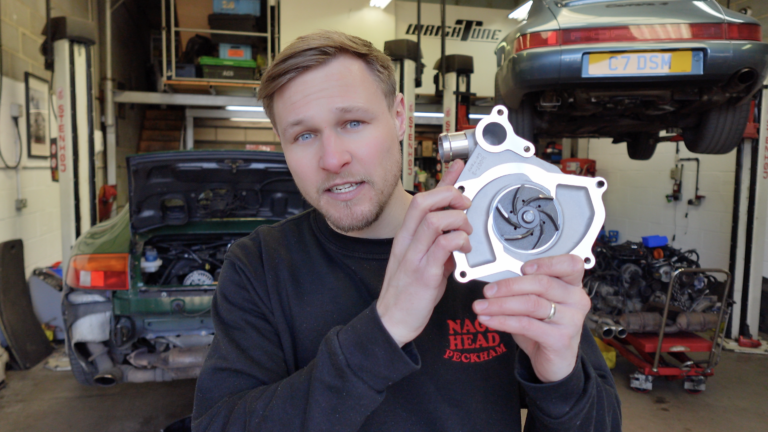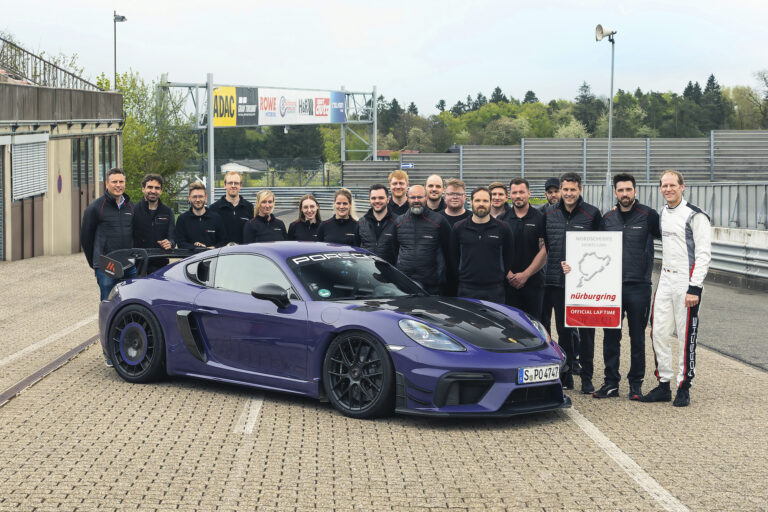Porsche brakes FAQ: expert maintenance & upgrade tips
A sports car needs to stop equally well as it can accelerate. Chris Wright talks 9WERKS through common questions relating to Porsche brakes, with pro maintenance and upgrade tips
We all understand the acceleration of a 911, but have you ever paused to consider how important brakes are? Porsche realised this early on, notably with the 906-8 Bergspyder of 1965, which used double-walled brake discs notable for the addition of a secret drilling between the disc faces. The extra airflow meant brakes dissipated heat more efficiently, permitting later and harder braking, to huge competitive advantage. The innovation lead to the introduction of the vented disc on the 911S of 1966.
So what do you need to know when it comes to the care, maintenance and upgrade of your Porsche brakes? Chris Wright of the 2022 9WERKS award-winning service specialists, Wrightune, provides expert insight with five top tips.
Are classic Porsche brakes any good?
“Early 911s give very little trouble on brakes,” Chris says. “They are easy to work on, but mainly give issues through lack of use”. To function, brakes use a special fluid. Pressing the brake pedal pushes a cylinder, which forces that fluid to compress through pipes to the brake calliper. At that end, under the applied pressure the fluid forces pistons out, compressing the brake pads against the disc, slowing the car. Simple, and devastatingly effective in any 911, not least because combined with further sensors and electronics, the same system can be used to meter a spinning wheel, for traction control or launch control.
But it needs servicing to maintain performance. “Brake fluid is hydroscopic – meaning it absorbs water – so has a service interval, usually two years,” says Chris. Pads wear next, so need replacing as the friction material wears down, then comes the discs, which have the longest life of the consumables.
Categories
Is replacing Porsche brakes expensive?
Regardless of how cheap a Porsche might be to buy, they are all still very much ‘Porsche money’ to run and maintain, so an annual budget should always be set aside to ensure proper maintenance of your Porsche. Brakes are considered as consumables, but the real costs come through lack of use, as Christ points out. “Through lack of use, the pistons can seize in the callipers, meaning a rebuild is needed,” he reveals. “On the 3.3 Turbo and 964 onwards, callipers are aluminium, meaning steel fittings can react, causing corrosion. Bleeding the brakes involves loosening the steel bleed nipple on the calliper, and corrosion between the metals can mean the thread strips on the calliper. Repair isn’t always possible, so it can mean a new calliper,” he tells us. The same issue befalls replacing brake hoses, too.
Regardless of how cheap a Porsche might be to buy, they are all still very much ‘Porsche money’ to run and maintain, so an annual budget should always be set aside to ensure proper maintenance of your Porsche. Brakes are considered as consumables, but the real costs come through lack of use, as Christ points out. “Through lack of use, the pistons can seize in the callipers, meaning a rebuild is needed,” he reveals. “On the 3.3 Turbo and 964 onwards, callipers are aluminium, meaning steel fittings can react, causing corrosion. Bleeding the brakes involves loosening the steel bleed nipple on the calliper, and corrosion between the metals can mean the thread strips on the calliper. Repair isn’t always possible, so it can mean a new calliper,” he tells us. The same issue befalls replacing brake hoses, too.
What are the common spots to check for corrosion?
Porsche 964 and 993s can have corrosion-related issues on the brake plates under the brake pads. Similar to the bleed nipple issue, corrosion between the steel plates and aluminium calliper lifts and distorts the plate, tightening the pad in the calliper or even preventing new pads from fitting. The fix, he tells us, can be involved, and can also mean new callipers are required, in some cases.
Brake pipes are usually pretty good on early cars, but he does notice corrosion issues on 996 onwards. Of particular trouble can be pipes behind under trays, as a lack of airflow allows moisture to linger, hastening corrosion. Often, those are the pipes that burst under enthusiastic test of an annual MOT.
“Disc corrosion is common on 996s if they’re not used, or stored badly,” Chris says, “especially on the inner faces of discs”. Annual disc changes on some cars have been necessary, in extreme cases, an issue Chris pins down to the lack of chromium levels in modern discs. “Once corrosion is set in, it can’t be removed,” he comments. “They can be skimmed, but replacement is often cheaper, and better”.
How durable are Porsche ceramic composite brakes, or PCCBs?
“Carbon ceramic systems are really good,” he enthuses. “Discs are very hard, and can last 100,000 miles, outside extreme usage.” Replacement costs are in the £20,000 mark, so that is welcome news.
“Carbon ceramic systems are really good,” he enthuses. “Discs are very hard, and can last 100,000 miles, outside extreme usage.” Replacement costs are in the £20,000 mark, so that is welcome news.
How best to improve the braking on your Porsche?
“The best improvements will come from higher-spec pads, stainless steel braided brake hoses and higher spec fluid,” Chris reveals. Expect some squealing from such pads, he says, but it is an easy win. So too are the hoses and fluid. “Stainless, braided horses won’t swell under braking like standard rubber ones, meaning better transmission of fluid to the calliper pistons,” he highlights, adding to make sure the fittings are stainless too, not steel, to avoid corrosion issues in the future. “Combined with high-spec fluid, this will often give the best ‘bang-for-buck’ improvement,” says Wright. “Weigh up the benefits of going further, with larger discs or modifications, against the benefits and larger costs.”
“The best improvements will come from higher-spec pads, stainless steel braided brake hoses and higher spec fluid,” Chris reveals. Expect some squealing from such pads, he says, but it is an easy win. So too are the hoses and fluid. “Stainless, braided horses won’t swell under braking like standard rubber ones, meaning better transmission of fluid to the calliper pistons,” he highlights, adding to make sure the fittings are stainless too, not steel, to avoid corrosion issues in the future. “Combined with high-spec fluid, this will often give the best ‘bang-for-buck’ improvement,” says Wright. “Weigh up the benefits of going further, with larger discs or modifications, against the benefits and larger costs.”
It is something we’ve said before, but the best way to ensure the full health and performance of your 911 – or any Porsche for that matter – is to simply use it, and service it at the required intervals. Using a 911 keeps the fluids flowing, and all seals, bearings and components free and lubricated. A stored 911 is never as happy as one with hot oils.
Contact chris@wrightune.co.uk
01491 826911
